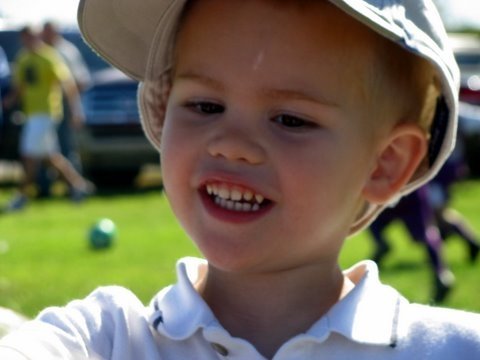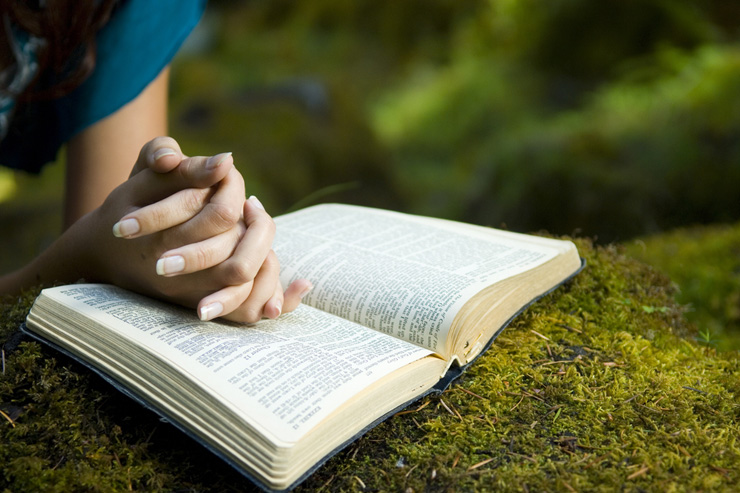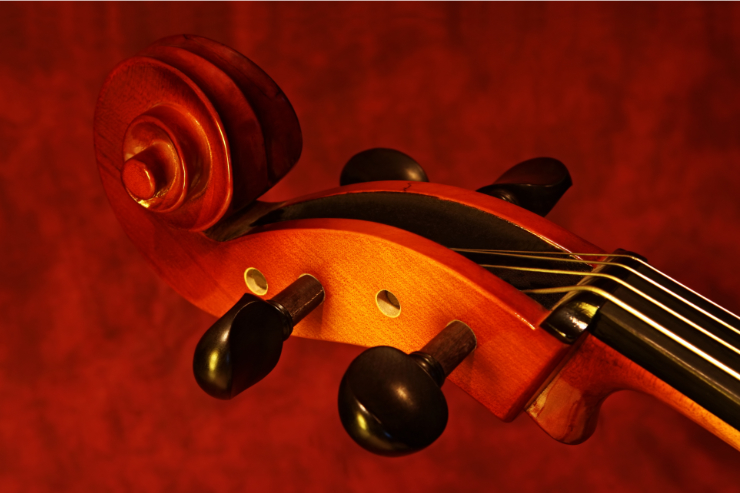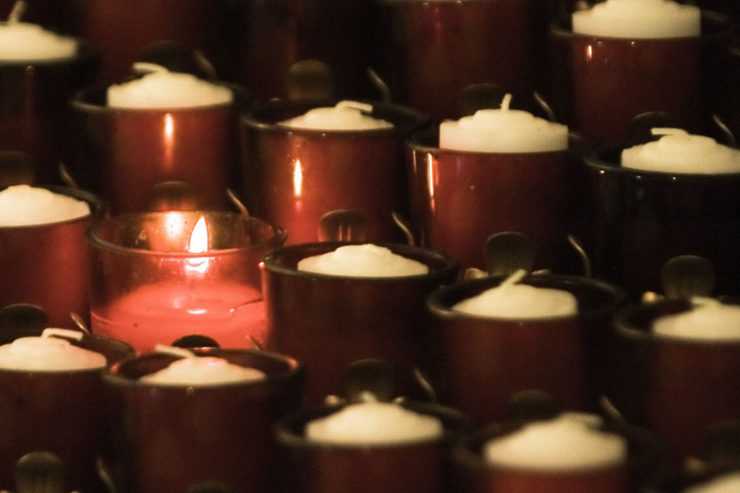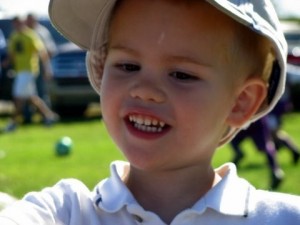 A “freethinker” is defined as one who forms opinions on the basis of reason independently of authority, especially one who denies religious dogma. Perhaps unbridled intellectual freedom sounds seductive at first, but is this really a good idea?
A “freethinker” is defined as one who forms opinions on the basis of reason independently of authority, especially one who denies religious dogma. Perhaps unbridled intellectual freedom sounds seductive at first, but is this really a good idea?
Consider children. Truth is basically simple and if an idea wouldn’t make sense at a fundamental level to a child, then the idea is probably nonsense. For instance, imagine explaining to a five-year-old that he has free reign to think and conclude whatever he wants, permission to be an absolute free-thinker. Sound good?
“William, go for it! You are your own authority. Explore all possibilities independently, pick your own symbols, decide for yourself what is right and wrong, and try anything without restraint.”
What would William do? Well, at first he might take up the idea and have some silly fun. But eventually that trusting and innocent little boy would only be confused because the proposition is daunting. Perhaps he could try to take the proposal seriously and set out to construct grand schemes of axioms and conclusions. The problem is, at the end of such a time-consuming endeavor the knowledge would only make sense to (the no longer so little) William, and unless he converted the world to his ways, William’s free intellectual exercise would be futile.
That is simply to say, unbridled intellectual freedom is actually non-intellectual, and even children understand that knowledge is fiduciary. They naturally don’t want free reign, they really want guidance.
Or, consider daily life. We don’t go into the kitchen with unrestrained freedom, whimsically mixing pickle juice with heavy cream to see if it makes a good sauce for chocolate cake. We don’t approach our spouse each day as if we’ve just met a strange new person, tossing out all that we’ve come to know. Would we blissfully paint the porch if the house were burning down?
Sure some would have us believe, whether it is the Dalai Lama or H. Jackson Brown Junior, that the best instruction in life is to “approach cooking and love with reckless abandon” and while there may be a little to that, it doesn’t take much to see that this flinging of one’s self into the abyss is really not very wise, seductive though it may sound. Can we do anything at all – successfully – without training and restraining our intellectual powers under the guidance of authority?
No, and that is where real intellectual virtue lies – in knowing the appropriate boundaries.
The idea that true intellectual freedom must first be rooted in, and loyal to, fiduciary axioms is necessary for any discipline. A geologist cannot deny that the earth exists; the astronomer cannot deny that the heavens exist; and the physician cannot deny that disease exists. (1) In those disciplines the one who studies that body of knowledge must learn the fundamentals first, and accept them, to build, clarify and further the field of study. In this way the discipline is furthered, rather than continually struck down and rebuilt. That is not a limitation on intellectual freedom, but rather the nature of the existence of a discipline – and its own freedom unto itself.
But who is the ultimate authority?
God is knowledge. St. Thomas, in the beginning of the Summa Theologica, says that the study of Divine Revelation, what God has revealed to us, is the highest science. (2) In the study of scared science, theology, freedom is exercised only in communion with the Magisterium, which guards the Deposit of Faith. The theologian cannot deny canonical Scriptures and dogmas of the Church, the very foundation of Catholic faith, and still be a theologian.
The Church has addressed this theologically based on reverential fear of God, the Author of all Truth and ultimate authority on all knowledge. Christ was obedient unto death, yet the ascendency of the Catholic Church was the most liberating event in human history. Obedience to the authority of the Magisterium is a faithful assent to Revealed Truth. Why? Because truth sets man free.
St. Thomas considered in Summa Contra Gentiles what awkward things would happen without faith. Man would stagnate because each individual would not have enough time in a single lifetime to sort through falsity and truth enough to progress. We need supreme guidance, just like children need teachers. St. Thomas said that without faith in God, “the human race would remain in the blackest shadows of ignorance.” (3)
This idea of obedient assent does not go unchallenged, of course. Modern thought has become permeated with the ideology of liberalism, in which judgments are declared as valid because they proceed from individual powers rather than from an authority. The (generally labeled) Modernists of the nineteenth and twentieth centuries promoted, to varying degrees, this kind of intellectual freedom, but they crossed the line into heresy when that freedom led some to reject the objective truth of Divine revelation.
That rejection, in turn, led to the idea that dogma evolves with cultures, that faith is merely individual sentiment subject to individual whims, and that science is the only objective truth. That’s why they think faith and science are separate, but of course they never can be. Further, as a brief tangent, the logical consequence of this separation was also that State and Religion are completely separate, and we see where that is going. The rejection of objective truth spread like poison through the Christian branches, as Pope Pius X predicted it would in the 1907 encyclical, Pascendi doninici gregis. (4)
The idea of free-thinking started with a rejection of Scholastic theology and of traditional Catholic doctrine, and it persisted both within and outside the Church. Some theologians want the freedom to dissent from traditional authority because they think that submission to authority is a form of servitude. This leads people to overestimate human facilities. Such an idea is false, and it induces foolishness and ungratefulness in civil society. (5)
Well, think about it.
If people enter intellectual endeavors under this metaphysical umbrella of skepticism (be it theology, philosophy, or social and physical sciences, domestic life or grade school) receiving teaching as a priori suspect, then its truth is continually contested instead of clarified and developed. The freedom itself becomes more important than the truth. (6) And that isn’t really freedom; that’s confusion.
Little William would do much better to first gain a true mastery of the basics and he, even at age five, would sense this fact of learning. That’s what Kindergarten is for. He needs to learn his alphabet and numbers, and basic rules for using them. A good cook must learn the basics of cooking first. A wife that loves her husband wants to know him better, not her idea of him. As for painting porches while buildings burn down, in many intellectual circles today, bereft of solid philosophical grounding, this analogy plays out as if the scholar or scientist is unaware of anything beyond the specialty of his immediate porch often shrouded with political agendas.
Consider the things we are asked to accept today in the name of science or intellectualism regarding human life, global conditions, our origins, our limits, our ethical behaviors. Besides testing an idea to see if it makes sense to a child, there’s another important test to examine the motives of the investigator. Does the investigator seek to conform truth to his worldview, or does he seek to conform his worldview to truth? If it’s the former, beware. There was only one man who was also God.
To disregard true authority brings the awkward pain of self-destruction, on any level.
Imagine the teacher’s conundrum if little William announces, “Erp, finquish pashegti!” because in his free exercise of language and symbols where he alone is his own authority, he has decided that this phrase means he needs to go potty.
Awkward indeed. So much for the seduction of free-thinking.
Sources
- Avery Dulles. Craft of Theology: From Symbol to System. (NY: Crossroad Publishing Company, 1992), page 167-8.
- St. Thomas Aquinas, Summa Theologica, First Part, Question One.
- St. Thomas Aquinas, Summa Contra Gentiles, Book One, Chapter Four.
- Pope Pius X. Pascendi doninici gregis: Encyclical of Pope Pius X on the Doctrines of the Modernists, September 8, 1907.
- Pope Leo XIII. Aeterni Patris: Encyclical of Pope Leo XIII on the Restoration of Christian Philosophy, August 4, 1879.
- The Sacred Congregation for the Doctrine of the Faith (1990), “Instruction Donum Veritatis on the Ecclesial Vocation of the Theologian.”
Visit Stacy’s website: http://www.acceptingabundance.com/
Follow Stacy on Facebook: http://www.facebook.com/strasancos
Please help us in our mission to assist readers to integrate their Catholic faith, family and work. Tell your family and friends about this article using both the Share and Recommend buttons below and via email. We value your comments and encourage you to leave your thoughts below. Thank you! – The Editors

